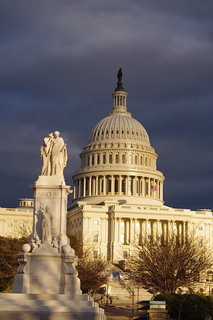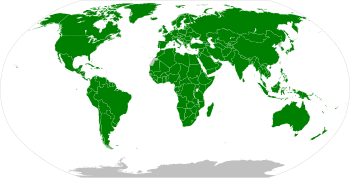By Jacob Serfas and Nikolas Leontopoulos (PressProject) - Billionaire shipowner, owner of Olympiacos F.C. and Piraeus strongman, Evangelos Marinakis has been implicated in a potential criminal ring which prosecutors say appears to have “approached and sought to manipulate… police officers, judges, politicians and other powerful individuals of the country.” Yet despite Mr Marinakis’s prominence (or perhaps because of it) few media outlets have chosen to report on the allegations against one of the country’s most influential men.
Last week SKAI TV published a recent decision by the Misdemeanor Council of Athens to allow secretly recorded phone conversations to be used in a preliminary investigation of Mr Marinakis and a number of other important figures suspected of a range of crimes. These include setting up a criminal organisation, conspiring to rig the outcomes of football matches, blackmail, bribery and violating the law regulating explosives. The Olympiacos owner and other club and Football Association officials are due to appear before prosecutors to offer explanations on the 20th of August. The investigation is ongoing; no indictments have been issued against the persons mentioned in the Council’s report.
The Council’s decision includes about 100 pages of transcripts of telephone conversations recorded in 2012 which, among others, appear to show Mr Marinakis abusing his influence as the head of Olympiacos. Andreas Koreas, the prosecutor in charge of the case writes:
“From the evaluation of the content of the transcribed telephone conversations, the following indications arise: That the president and close collaborators of Olympiacos… approached and sought to manipulate in order to serve their interests, police officers, judges, politicians and other powerful individuals of the country, some of whom they hired in important positions in the football club following their departure from key positions they held in the public sector.”
The prosecutor goes on to maintain that Marinakis chose, through the president of the Greek Football Association, Giorgos Sarris, specific referees to oversee key games in the playoffs of the 1st division Football League during the 2011-2012 season. Mr Marinakis is also alleged to have used his influence among individuals at smaller clubs loyal to him to secure the election of Mr Sarris as the head of the Football Association.
In several of the recorded conversations Mr Marinakis is heard apparently giving direct instructions to a high ranking Greek FA official. In one instance the official asks for Mr Marinakis’s approval over the referee selection for a lower division game. In another Mr Marinakis appears to tell the official of what the outcome of an appeal should be.
The documents also include testimony from a number of individuals who claim to have been the victims of campaigns of intimidation by people associated with Olympiacos club. The most damning of these comes from the FIFA referee Petros Konstantineas who testified before prosecutors that after being selected to referee a Superleague match (the top league in Greece) between Xanthi and Olympiakos during the 2011-12 season, various individuals from the Greek FA informed him in no uncertain terms that Olympiakos must win the match.
He responded that he ‘did not owe anything to anyone’ and that he would referee the match fairly and that the ‘best and luckiest would win.’ Olympiacos was defeated in the game. Subsequently, a bakery owned by Konstantineas was first vandalized and then several weeks later set on fire in an act of arson by unknown individuals who had placed an improvised incindiery device in the building.
Marinakis and the press
The court document is also revealing about Mr Marinakis’s apparent use and intimidation of the press to further his and Olympiacos’s interests.
In the past it has been alleged by the newspaper Avgi (affiliated to the leftist opposition party SYRIZA) that the newspaper Parapolitika is controlled by Mr Marinakis and that the shipowner used the newspaper to publish stories favourable to the right-wing Samaras government.
In response, Parapolitika sued Avgi several months ago, denying any links to Mr Marinakis. (Incidentally the lawyer in that case was Makis Voridis, at the time the parliamentary spokesman for New Democracy, now the Health Minister following June’s government reshuffle. Mr Voridis rose to prominence from the ranks of parties on the far-right.)
On paper, the newspaper as well as the other holdings of the “Parapolitika” media group (including a financial paper, a sports paper and an Olympiacos FM radio station) are all owned by the chief editor of Parapolitika, journalist Yannis Kourtakis.
Asked in a 2012 interview (link in Greek) about the financing of the Parapolitika paper Mr Kourtakis said, “Our resources and money are provided by our thousands of readers.” About his opinion of Mr Marinakis, Mr Kourtakis said “I follow, as you do, Mr Marinakis as a businessman.”
And in 2014, prior to the launching of a new radio station, Mr Kourtakis was asked in an interview whether it was perhaps an ‘expensive sport’ for a journalist turned publisher to run a radio station. He replied:
“Healthy businesses, businesses without loans, those that want to have a leading role have only one source of funding: the public.” His interviewer insisted, asking, “Don’t you need a businessman to back you up?”
Mr Kourtakis responded:
“The time when businessmen invested in the media losing money is over. Our criterion is the trust which the public show in us. That is our strength and out point of reference.”
Yet the assertion from Parapolitika and its chief editor that Mr Marinakis had no links with the paper, is directly contradicted by the transcripts of the wiretapped phone conversations which record Mr Marinakis talking with Mr Kourtakis in May 2012, conferring over the next day’s headline of the newspaper and with Mr Marinakis apparently giving the editor direct instructions.
Elsewhere Mr Marinakis is also heard instructing his head of communications to place stories in a number of ‘their’ outlets and in Parapolitika.
Aside from Mr Marinakis’s apparent use of ‘friendly’ outlets, in testimony other journalists have claimed to be the victims of intimidation by Olympiacos and/or Mr Marinakis. One journalist, George Tampakopoulos, testified that Mr Marinakis struck him twice in a restaurant, while reporters Antonis Karpetopoulos and Nikos Vasilaras testified to having been attacked by gangs of apparent Olympiacos supporters. The latter, according to the court documents, was also fired from his job allegedly following an order from Mr Marinakis.
Perhaps even more intriguing from a media point of view is the widespread silence regarding the latest court documents that implicate one of the country’s most influential shipowners in criminal activities.
While the story was broken by one of the main national broadcasters - SKAI, few others have reported on the recent court decision and associated transcripts. (Note that the owner of SKAI is Ioannis Alafouzos, another shipowner who is also the owner of Panathinaikos F.C. which is Olympiacos’s main rival. It is well known that there is little love lost between Mr Marinakis and Mr Alafouzos who rarely pass on opportunities to publicly attack each other.)
Many important newspapers and websites are entirely silent on the issue. A characteristic example is perhaps ToVima.gr, owned by the biggest media group, DOL, in the country. The newspaper reported a story about Mr Marinakis only two days after SKAI broke the story about the allegations. The article reports on comments the shipowner made to an Economist conference about the importance of shipping to the Greek economy, yet somehow managed to avoid a single mention about the allegations against Mr Marinakis. Nor does the newspaper report on them anywhere else.
Other news outlets have reported on the recent revelations, without however naming those who are investigated (including Mr Marinakis) nor publishing any of the content of the Council’s decision.
The pretext invoked by most such news outlets regarding their silence is that the leaked judicial files are part of a criminal investigation that is confidential and has not until now led to convictions. But in Greece publishing leaked judicial files that are part of an investigation is a daily routine for the press, and in many cases the same outlets that are currently invoking the secrecy of the investigation have been very active in leaking or reproducing such material. And one can only wonder at how a judicial report concerning one of the country’s top businessmen and the country’s top football club is not deemed newsworthy enough for those media outlets to report.
While it can be difficult to criticise newspapers for what they choose not to report on, in this case the silence is somewhat deafening.
TPPI conducted a simple survey of the frontpages of all of the top political, economic and sports newspapers of July 9th, the day after the leak of the council’s decision. With the exception of a few newspapers, (some of which are known to be linked to business interests that rival those of Mr Marinakis) the majority chose to completely ignore the issue, despite it concerning one of the most powerful businessmen in the country (or perhaps because of it?).
Of particular interest is the situation concerning sports newspapers. In Greece, surprising as it may seem, over 10 sports newspapers circulate nationwide on a daily basis. The majority of these have club allegiances. Perhaps unsurprisingly all those that support Olympiacos chose not to print a word about the investigation into Mr Marinakis and the alleged match fixing ring. However what is more alarming is that even those that are self-described as being independent (Sportday and Goal) also do not mention Mr Marinakis, (Sportday refers to the case somewhat uneasily without, however, mentioning any names - link in Greek).
In this context it is also worth mentioning that sports journalism is likely to become even less independent than it already is. Evangelos Marinakis and Yannis Alafouzos, and the football clubs owned by them (Olympiacos and Panathinaikos), are expected to further increase their grip on the sports media. According to press reports, Mr Marinakis, owner of Olympiacos FC, has already agreed to buy Sentra FM, a sports radio station, and Goal, the sports newspaper. Meanwhile Mr Alafouzos, for his part, is in talks to buy Novasport FM, the biggest sports radio broadcaster in the country, and Sportday, another sports newspaper. If the deals materialize, the two shipping magnates and owners of Greece’s two biggest football clubs will control the two biggest sports-related media groups in the country.


















